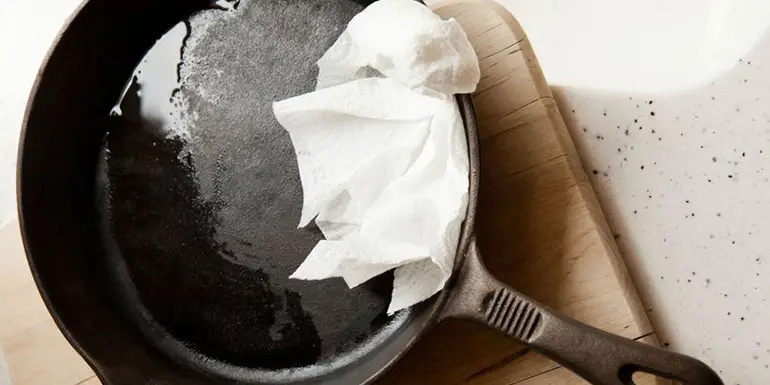
Hold it right there! Don’t even think about pouring that bacon grease down the drain. We get it – it’s a hot, oily mess. But it can cause serious issues. So, what in the world are you supposed to do with it?
Why Is Grease Bad for Drains?
The grease solidifies once it cools off. Sure, it might flow out of the pan and down the drain, but in a few minutes, the grease solidifies in the pipes and acts as a sticky trap for gunk and debris. Over time this blockage can clog the pipes or slow the drain. Grease also wreaks havoc on local sewer systems and septic tanks. Significant amounts of grease in sewers (fatbergs!) have even clogged neighborhood sewer systems.
What to Do with Leftover Cooking Grease
Bacon grease, duck fat, lard – any grease that is solid at room temperature should stay far away from your drains. Cooking oils that are liquid at room temperature, such as olive oil, vegetable oil, or canola oil, should also never be poured down the drain. Here’s what to do with both after you’re done cooking.
Grease – If the grease is still hot, simply pour it into a dedicated grease jar or can. A mason jar works well, or you can make a disposable grease can by removing the lid of a soda can with a can opener. When the jar or can fills up, simply scoop out the solid grease into the trash bin or throw out the entire can. You may also leave the grease in the pan, wait till it solidifies, and then wipe it out with paper towels.
Cooking Oils – Allow the cooking oil to cool off before you do anything with it. If there is less than a cup of oil, pour it into the trash can on top of a few paper towels. This may not be an option if you’re dealing with large amounts of oil. If you need to dispose of more than a cup, pour the oil into a container and reuse it next time you’re frying. Or you can save plastic jugs with screw tops to collect used cooking oil in and throw the entire container away when it’s full. (Screw the lid on tight.)
What If I Already Poured Grease Down the Drain?
If you’re reading this blog after the fact, there are a few preventative actions you can take to reduce the damage. Pour a gallon of boiling water slowly down the drain while you run the faucet on the hottest temperature setting. While you do this, squirt dish soap down the drain. The hot water should re-liquefy any solid grease, and the soapy water should hopefully carry it out of the pipes.
Call Expert Drain Cleaners
If you’ve been pouring grease down your drain for years, then you might need professional help (and an optional slap on the wrist). This grease is likely holding on to debris that is clogging your pipes and requires professional cleaning. Call Mr. Rooter Plumbing to unclog your drains and clean your pipes. You can also request an estimate on our homepage. Mr. Rooter Plumbing is locally owned and operated. Our plumbers understand that plumbing service is about not only your pipes but also your satisfaction. We won’t begin work until we tell you what needs to be done and how much it will cost; that’s the Mr. Rooter Plumbing guarantee.
This blog is made available by Mr. Rooter LLC, for educational purposes only to give the reader general information and a general understanding of the specific subject above. The blog should not be used as a substitute for a licensed plumbing professional in your state or region. Check with city and state laws before performing any household project.

